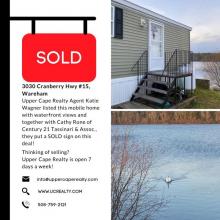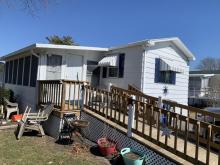Board of Health considers imposing fines on motels ‘being dishonest’ about long term guests
The Board of Health plans to fine hotel and motel owners for violating regulations that limit the possible duration of a guest’s stay.
The fines mark another attempt by the board to curb the ongoing problem of long-term guests residing in motels for periods longer than is allowed by law.
Since May 2016, the town has had and enforced limits on the amount of time a guest can remain in a motel or hotel room. As of 2017, the board had imposed a 21-day limit on how long a guest can remain in a motel or hotel room and a 90-day limit on stays in efficiency units (which contain some sort of kitchen element).
With rental housing scarce and expensive in the area, some people live in motels for long periods of time.
Long-time motel residents and motel owners have repeatedly said that the limits will increase homelessness, as many people who live in motels cannot afford other living accommodations. When passing the regulations, board members said they hoped limits on stays would ultimately create better living conditions for the homeless and spur motel and efficiency unit owners to improve the quality of the rooms.
During its Nov. 3 meeting, the Board of Health discussed the details of its plans to fine motel owners for violating the regulations that limit the duration of motel stays. Director of Public Health Patrick MacDonald explained that the fines would be a “brand new” addition to the town’s lodging regulations.
Owners are required to provide the town with some information about who resides in its rooms and for what period of time. But motel owners often provide incomplete or inaccurate information, board members said.
Board chair Amy Wiegandt and MacDonald have both said that they are aware of at least one motel owner who has guests who have overstayed the town’s limits.
The proposed fines are an effort to stop the dishonesty, Wiegandt said.
“The motels should be honest with us,” she said. “If [the motels] get into a problem that somebody’s there and can’t leave because they have no place to go, then they need to be honest with us.”
Motel owners who violate the limits could be hit with the following fines: $250 for a first offense, $500 for a second and $1,000 for a third violation. Those who violate the regulations also risk having their license to provide lodging revoked or suspended for some length of time.
If the board learns the motel owner is being dishonest, Wiegandt said then it makes sense to fine them on a per-day basis.
“You have to realize, they’re earning a hell of a lot of money from these people staying there,” Wiegandt said. “They’re earning about $1,600 a month.”
She described the fines as “a good wake-up call” for motel owners.
Wiegandt also acknowledged, however, that those residing in motels will still need accommodations. Board members emphasized that they have no desire to “put [people] on the street.”
At one time, Wiegandt said the plan for enforcing the limits was to require motel owners with long-term residents to prove those individuals had applied for housing assistance.
She also expressed a desire to have local housing assistance organizations come and speak to the board in the future about possible ways to support the people in town living at motels.
The board will discuss the changes to the lodging regulations again at a future meeting.



.png)












